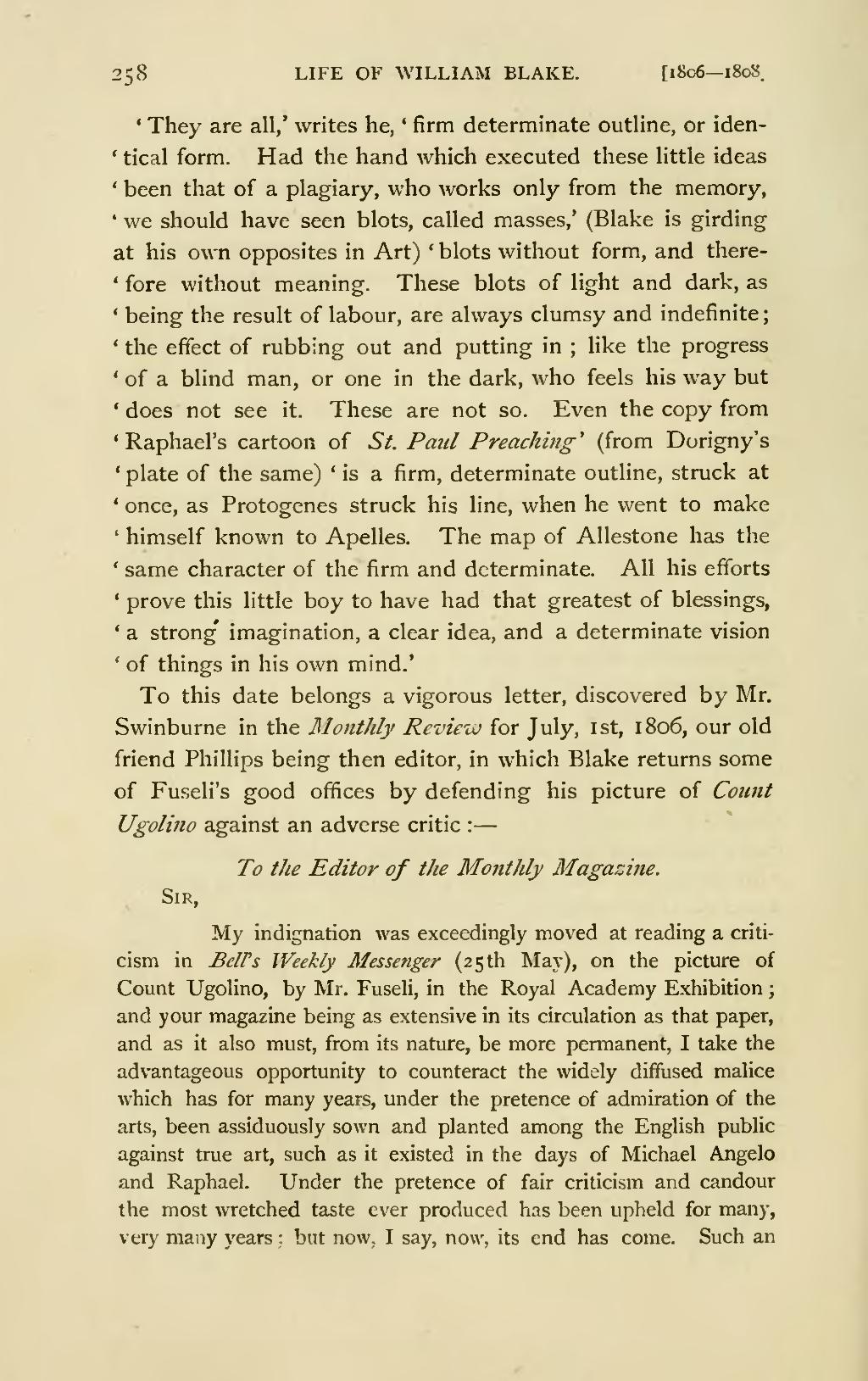'They are all,' writes he, 'firm determinate outline, or identical form. Had the hand which executed these little ideas been that of a plagiary, who works only from the memory, we should have seen blots, called masses,' (Blake is girding at his own opposites in Art) 'blots without form, and therefore without meaning. These blots of light and dark, as being the result of labour, are always clumsy and indefinite; the effect of rubbing out and putting in; like the progress of a blind man, or one in the dark, who feels his way but does not see it. These are not so. Even the copy from Raphael's cartoon of St. Paul Preaching'' (from Dorigny's plate of the same)' is a firm, determinate outline, struck at once, as Protogenes struck his line, when he went to make himself known to Apelles, The map of Allestone has the same character of the firm and determinate. All his efforts prove this little boy to have had that greatest of blessings, a strong' imagination, a clear idea, and a determinate vision of things in his own mind.'
To this date belongs a vigorous letter, discovered by Mr. Swinburne in the Monthly Review for July, 1st, 1806, our old friend Phillips being then editor, in which Blake returns some of Fuseli's good offices by defending his picture of Count Ugolino against an adverse critic:—
To the Editor of the Monthly Magazine.
Sir,
My indignation was exceedingly moved at reading a criticism in Bells Weekly Messenger (25th May), on the picture of Count Ugolino, by Mr. Fuseli, in the Royal Academy Exhibition; and your magazine being as extensive in its circulation as that paper, and as it also must, from its nature, be more permanent, I take the advantageous opportunity to counteract the widely diffused malice which has for many years, under the pretence of admiration of the arts, been assiduously sown and planted among the English public against true art, such as it existed in the days of Michael Angelo and Raphael. Under the pretence of fair criticism and candour the most wretched taste ever produced has been upheld for many, very many years: but now, I say, now, its end has come. Such an
